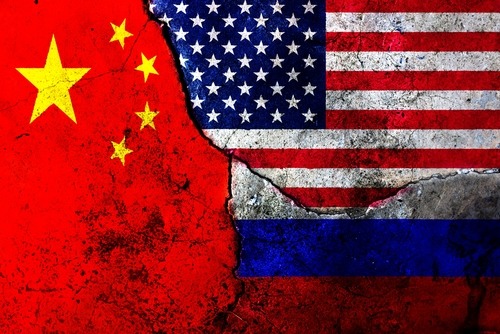
Testifying before the Senate Armed Services Committee for an annual Worldwide Threat Assessment hearing this week, Defense Intelligence Agency (DIA) Director Lt. Gen. Scott Berrier called attention to the activities and competition offered by China, Russia, North Korea, and Iran.
At a national level, China and Russia remain the major competitors of U.S. interests, by Berrier’s assessment. The COVID-19 pandemic has exacerbated matters, introducing a slew of logistical challenges that have opened opportunities for information warfare. This front has widened even as other issues remain a concern to military intelligence, including Chinese activity in Taiwan and Africa, along with its growing technological advances, and Russia’s development of hypersonic weapons.
“The nature and scope of the national security environment in which we operate is largely shaped by strategic competition – the continuous push-pull among the United States, China, and Russia for global strength and influence,” Berrier said.
Not everything has been negative in the past year, however. According to Berrier, the National Center for Medical Intelligence has worked hard to promote safety, and DIA is making headway in integrating artificial intelligence into its intelligence analysis efforts. The agency’s end goal is a more dynamic system built on the cooperation of man and machine, with data finds being uploaded into the cloud.
Other concerns remain, however, as they have for numerous administrations. Chiefly, Iran and North Korea. Although not as powerful as China or Russia, they still present challenges to the United States in specific areas. For example, Berrier pointed to North Korea’s missile tests, including three new types of short-range ballistic missiles and a sea-launched ballistic missile.
“In the Middle East, Iran is the primary state challenger to U.S. interests because of its sophisticated military capabilities, broad proxy and partner networks, and periodic willingness to use force against U.S. and partner forces,” Berrier said.
That assessment comes even as the world still debates how to address the flailing Iran Nuclear Deal, which the Trump administration unilaterally withdrew from. That initiative prompted Iran to backtrack from many of the deal’s stipulations and ramp up its nuclear efforts in the region.




